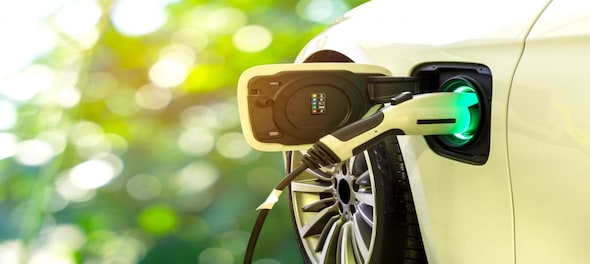
Indian electric vehicle (EV) Industry is witnessing rapid adoption led by their increasing popularity for being an alternative to internal combustion automobiles and the government policies for the widespread adoption to align with emission goals in 2030.
Currently, India’s overall automobile sector, including electric vehicles and internal combustion engine (ICE) vehicles, is the fifth largest in the world and is expected to become the third largest by 2030.
India, which is aiming that 100 percent of new vehicles in the country to be zero-emission by 2030, is already seeing a shift in vehicle buying preference.
2022 was a stellar year for EVs
EVs are recording a significant improvement in sales and have grown more than 2,218 percent over the past three years. Mahendra Nath Pandey, Minister of Heavy Industries, in a written reply in the Lok Sabha, revealed that while 19,100 were sold in 2019-20, 4,42,901 electric cars were sold in 2022-23 (till December 9).
Pandey also revealed that 2,37,811 EVs were sold in 2021-22 and only 48,179 in 2020-21. As on December 9, around 64 original equipment manufacturers (OEMs) of EVs have been registered and 7.47 lakh EVs under FAME India Phase II have been sold, said the reply.
Interestingly, more than half of the total EVs in India are three-wheelers and are used for commercial transport, followed by nearly 8 lakh two-wheelers for personal use. Currently, India has around 5,151 operational EV charging stations.
Nitin Gadkari, Ministry of Road Transport and Highways (MoRTH), in a written reply in the Rajya Sabha said, more than 18 lakh electric vehicles (EVs) have been registered in India, as of December 8, 2022. Out of this, Uttar Pradesh alone accounts for nearly 23 percent, with 4.1 lakh registered EVs.
Gadkari further said Maharashtra has the maximum number of operational public EV charging stations (PCS) at 660, followed by Delhi (539) and Tamil Nadu (439).
Despite the rise in preference for EVs in the country, a large chunk of vehicle sales continues to be powered by petrol/diesel. However, the electric vehicle industry with investment and support from the combination of private, public and government firms, is expected to reach up to 50 lakh by 2030.
The minister also revealed that the penetration of clean and green two-wheelers on Indian roads is also expected to witness a growth of 15 percent by 2025 from just 1 percent currently.
Government push
The Ministry of Power, in early 2022, issued revised guidelines for EV charging infrastructure to enable faster adoption of EVs in the country. To increase the number of EV charging stations in the country, it has already extended permits for the installation of private charging stations in offices and residential areas.
Furthermore, it has also issued a directive to permit the installation of EV charging ports in malls, housing societies, office complexes, restaurants, hotels, and other public places. The revised guidelines aim to ensure safe, reliable, accessible, and affordable charging infrastructure.
‘Faster Adoption and Manufacturing of Electric Vehicles’ phase two (FAME-II), which was initially intended for three years ending March 31, 2022, was extended in 2021 by 24 months until March 31, 2024. FAME India, part of the National Electricity Mobility Mission Plan, was launched to push for early adoption and market creation for both hybrids and EVs.
NITI Aayog also issued the draft battery-swapping policy addressing the key technical, regulatory, institutional, and financing challenges to help India develop battery-swapping ecosystems to unlock the large-scale adoption of battery-swapping.
The MoRTH, to prevent fire incidents in electric vehicles, amended the battery safety standards in September. These amendments were aimed at additional safety requirements related to battery cells, battery pack design, onboard chargers, and thermal propagation due to internal cell short circuits. However, the ministry extended the implementation of amendments to EV battery testing standards from October 1, 2022, to March 2023.
In addition to this, the Bureau of Indian Standards had also issued performance standards for EV batteries to ensure the safety of consumers. These standards were issued following various tests considering real-life scenarios for an electric vehicle, such as when the vehicle is parked, and where the battery is not used for an extended period, among others.
(Edited by : Vivek Dubey)
Check out our in-depth Market Coverage, Business News & get real-time Stock Market Updates on CNBC-TV18. Also, Watch our channels CNBC-TV18, CNBC Awaaz and CNBC Bajar Live on-the-go!


Who will succeed Modi? Oppn thinks Amit Shah will, but PM said this
May 21, 2024 2:38 PM
1100 villagers boycott Lok Sabha and Assembly polls in Odisha, here's why
May 21, 2024 10:56 AM

